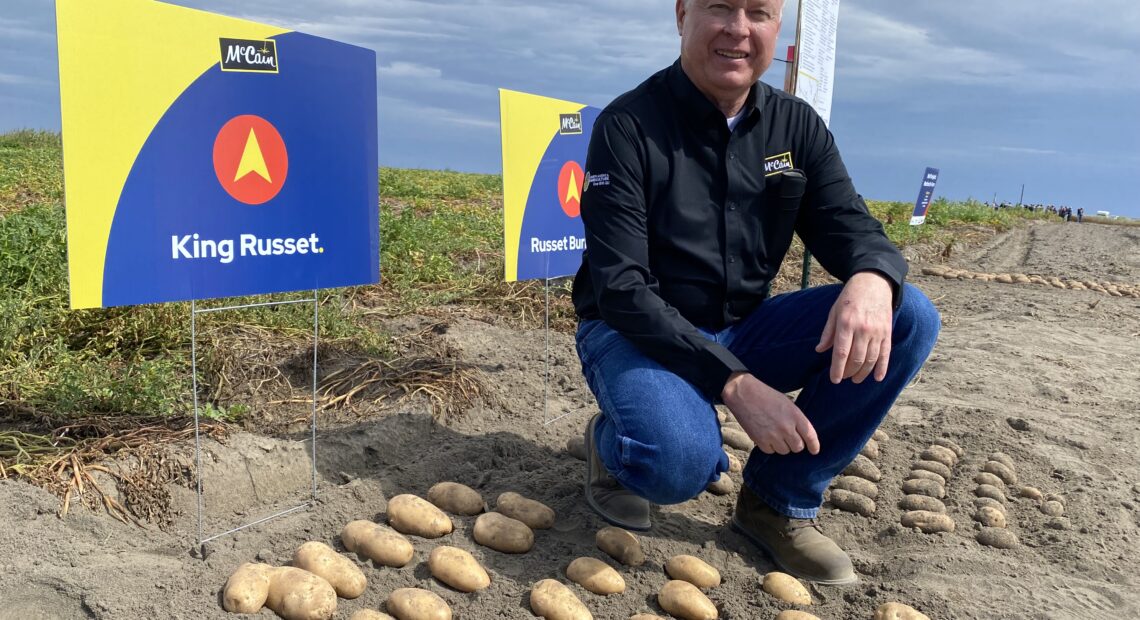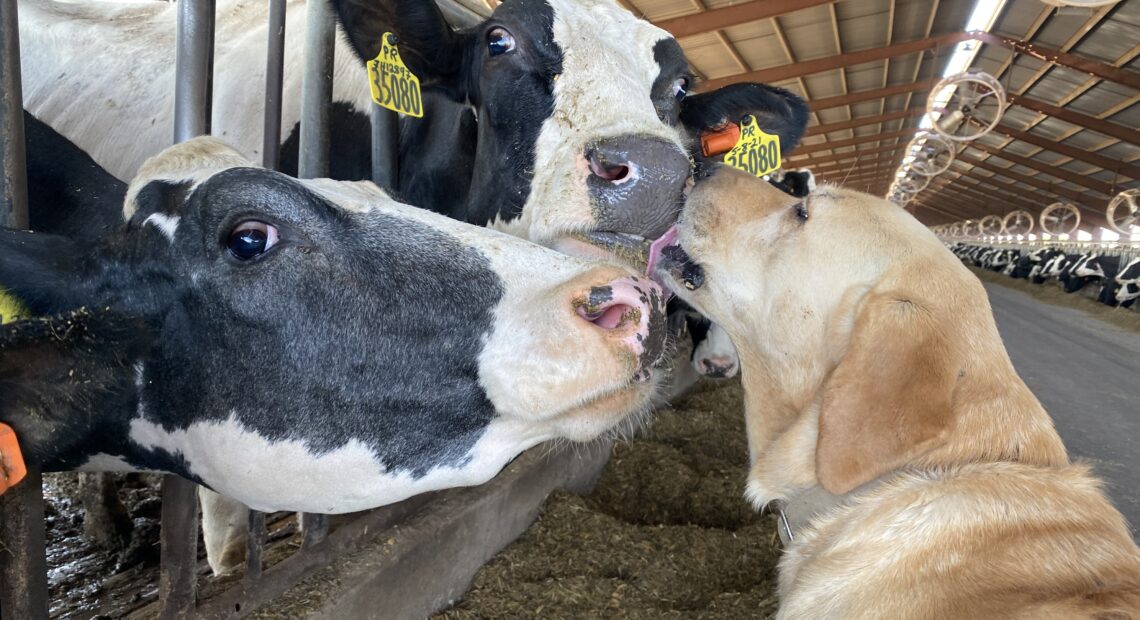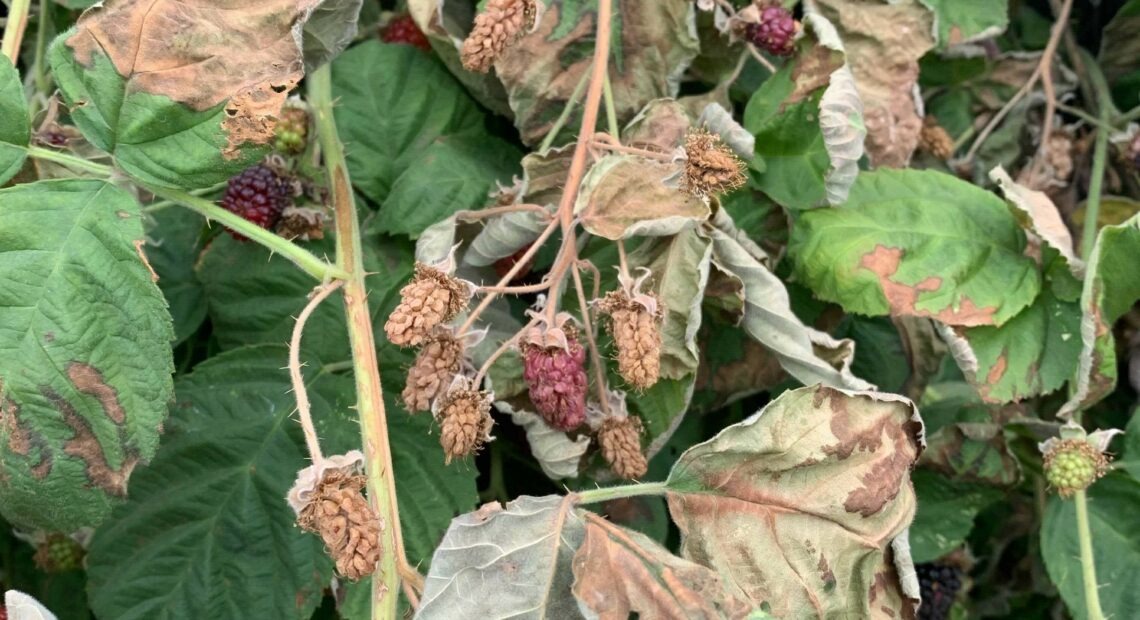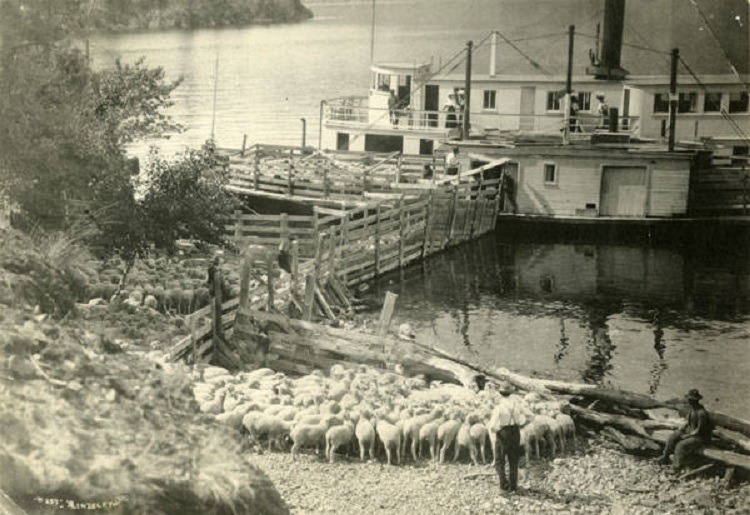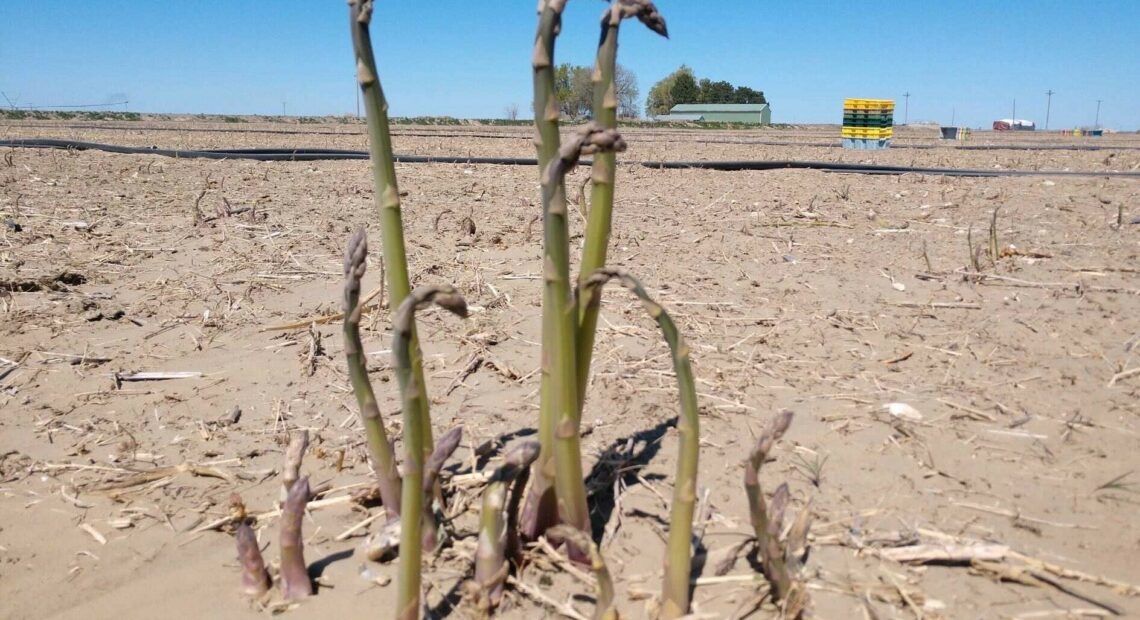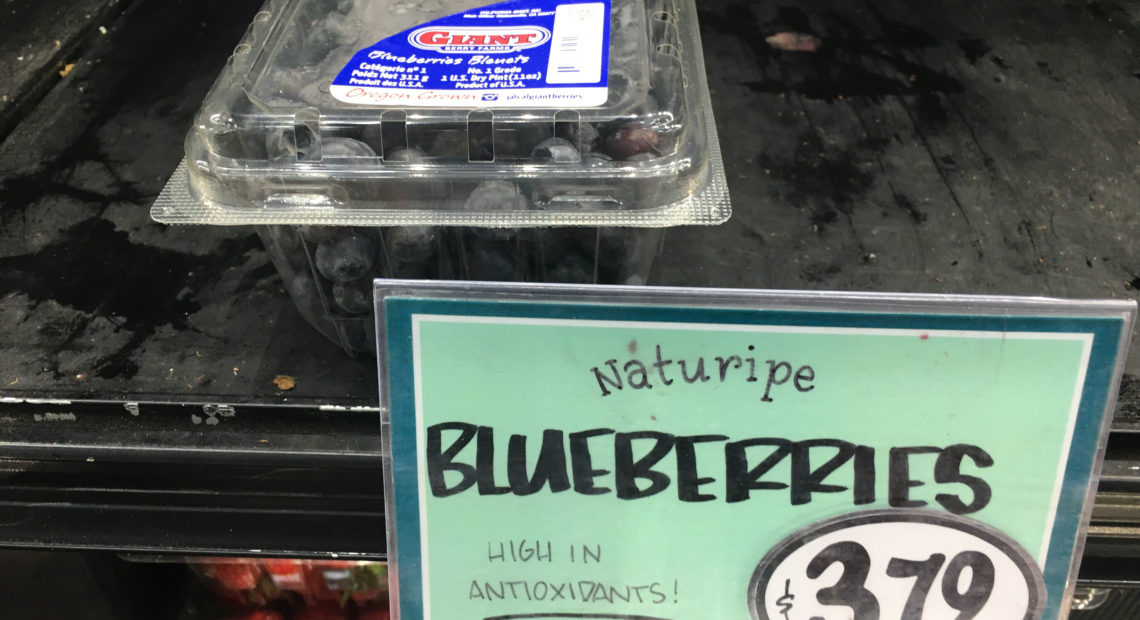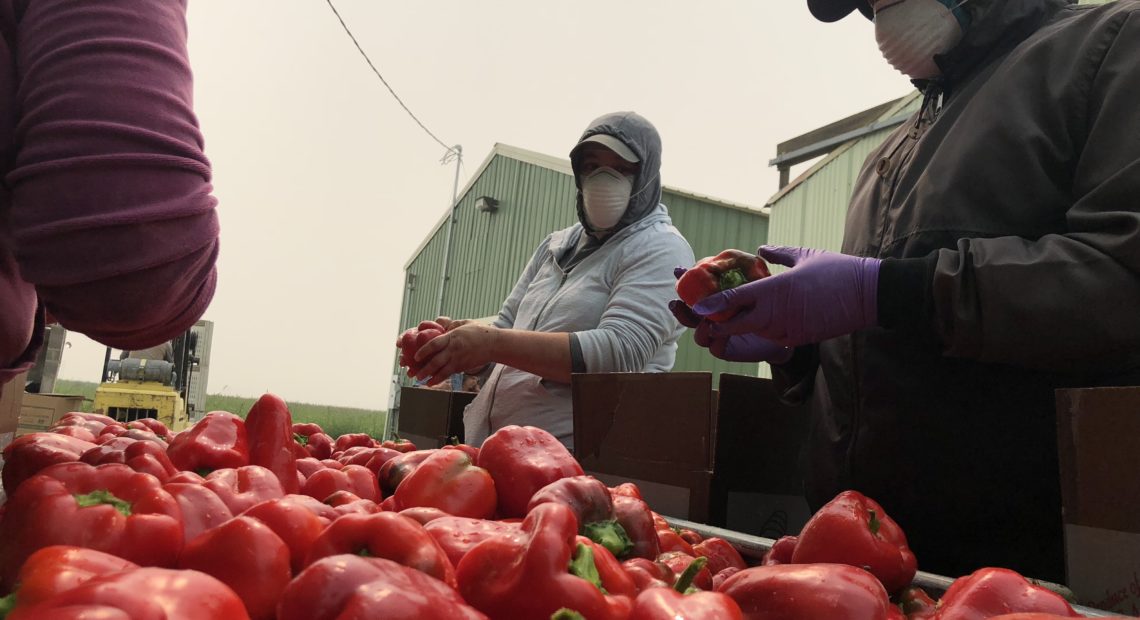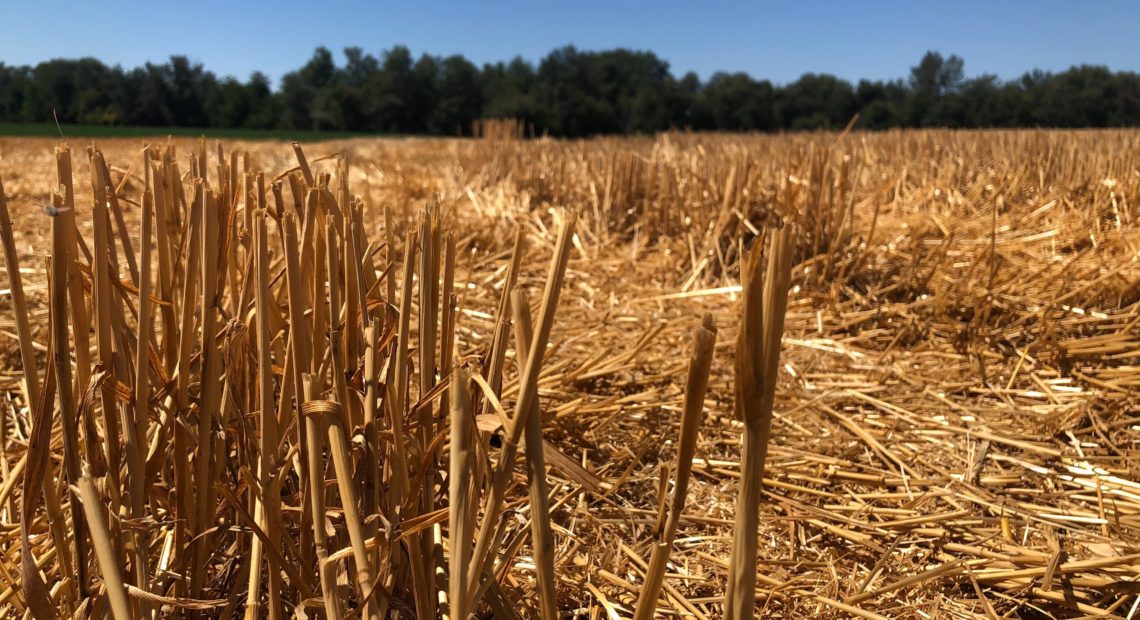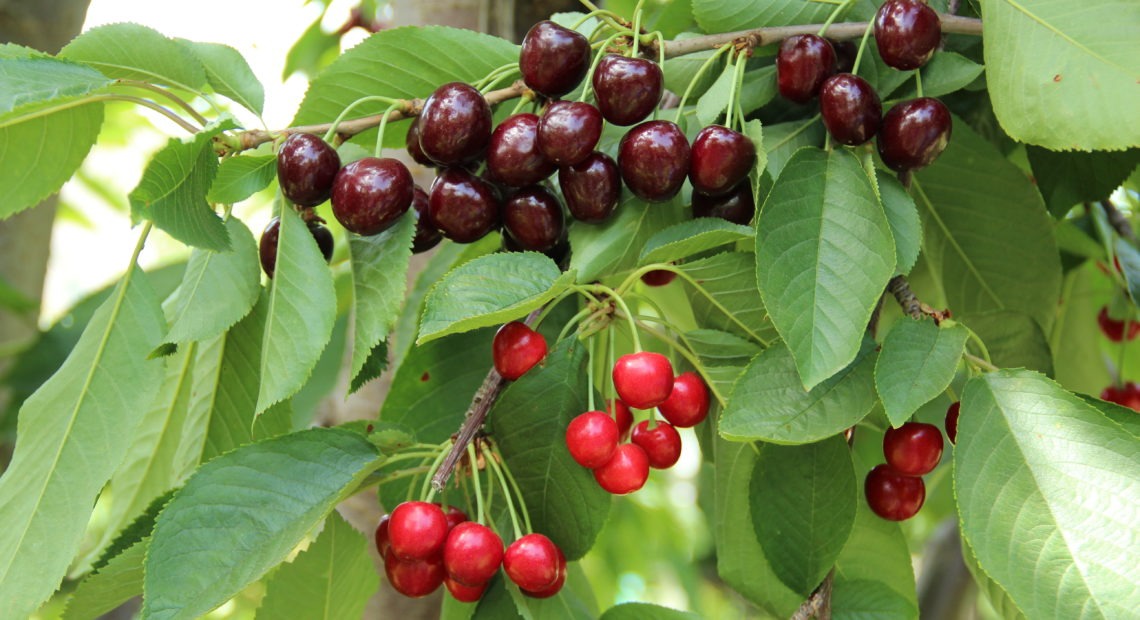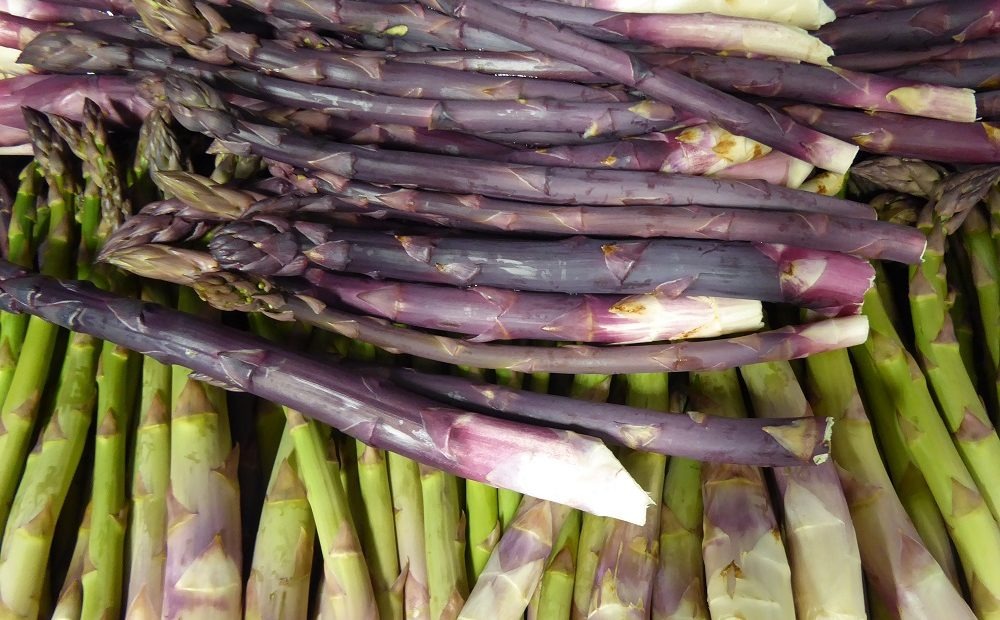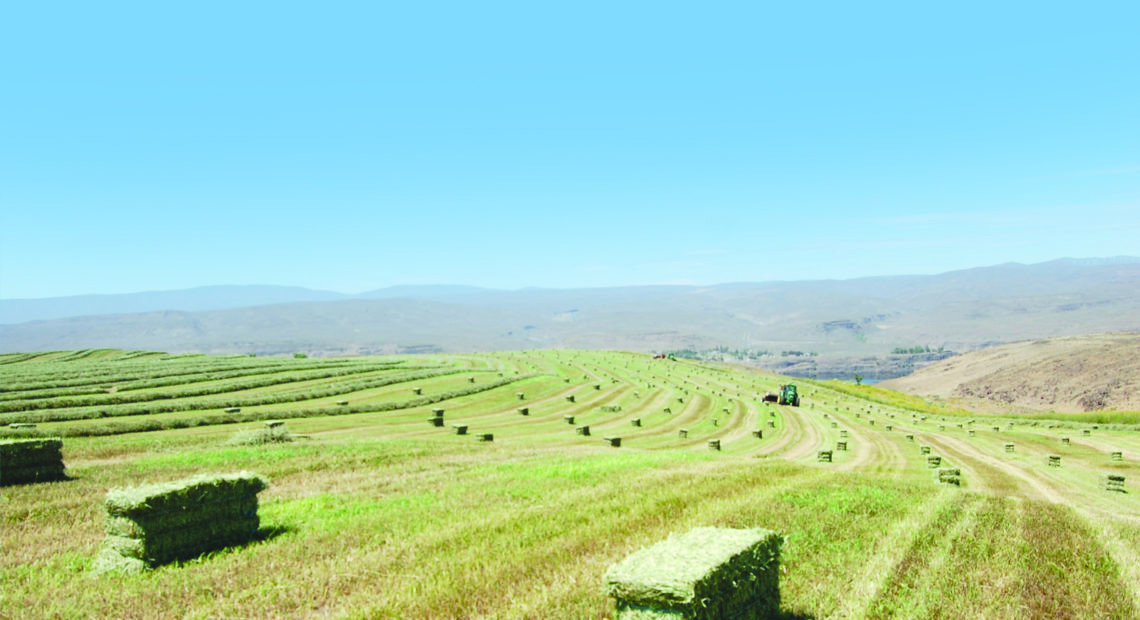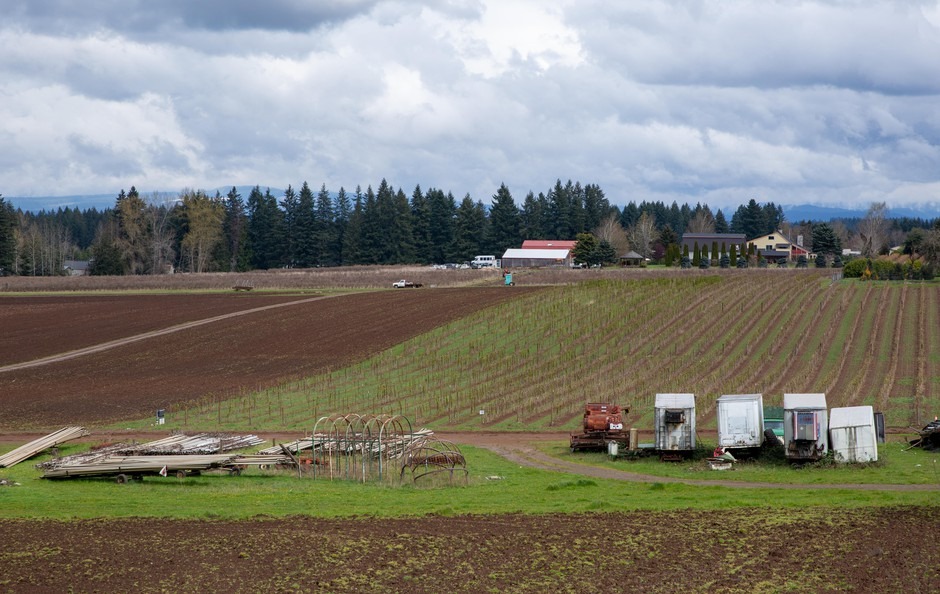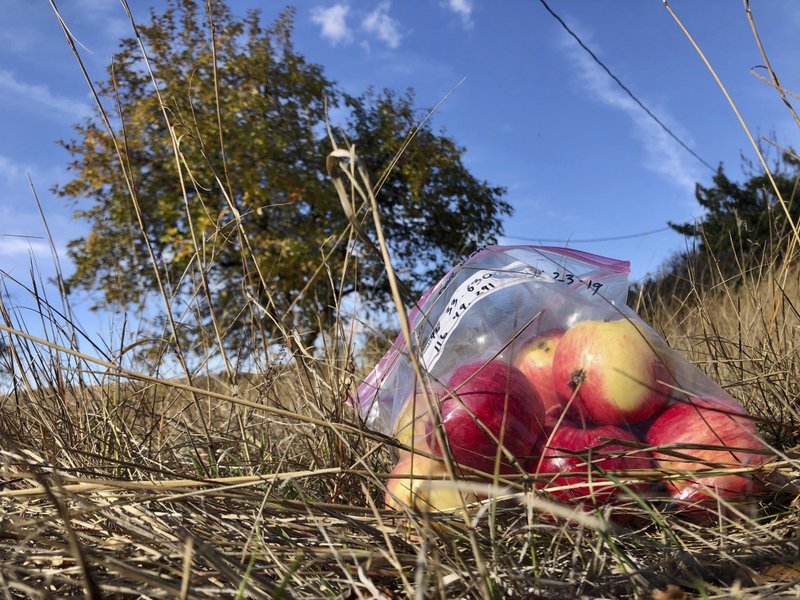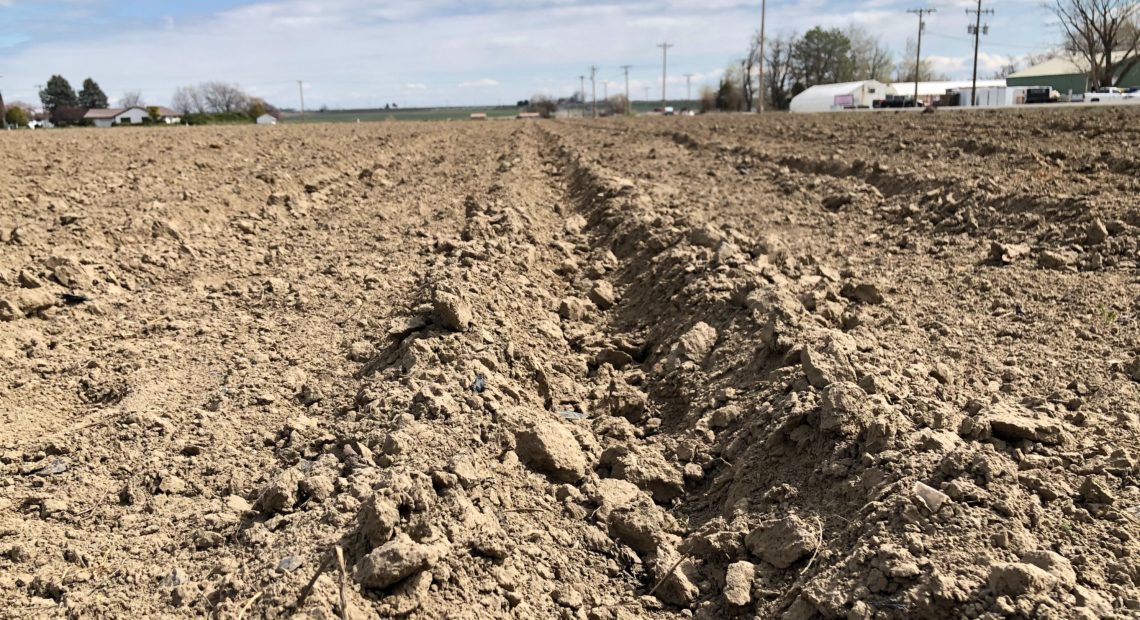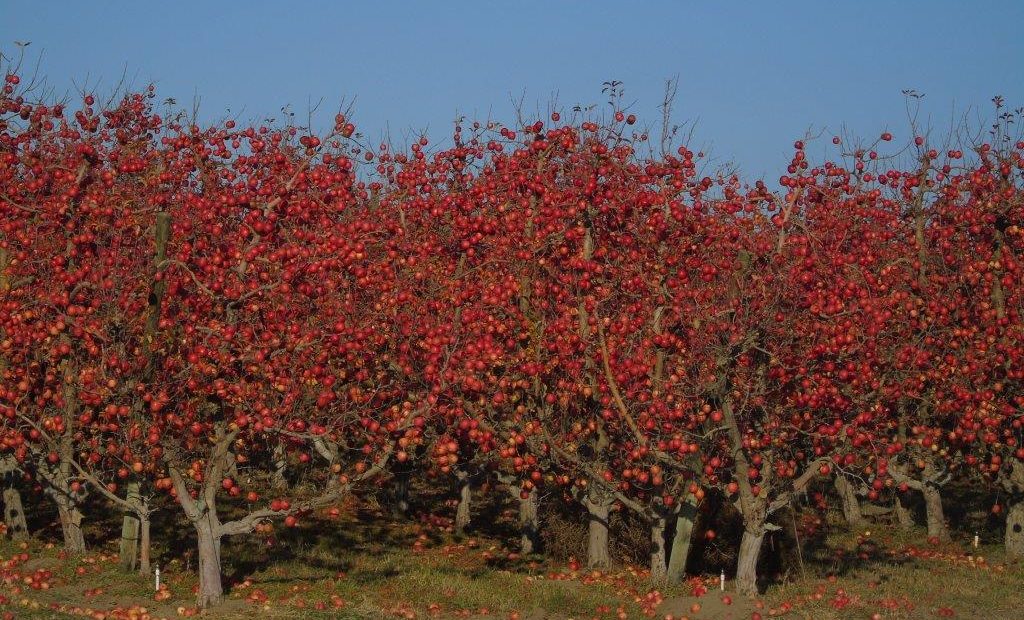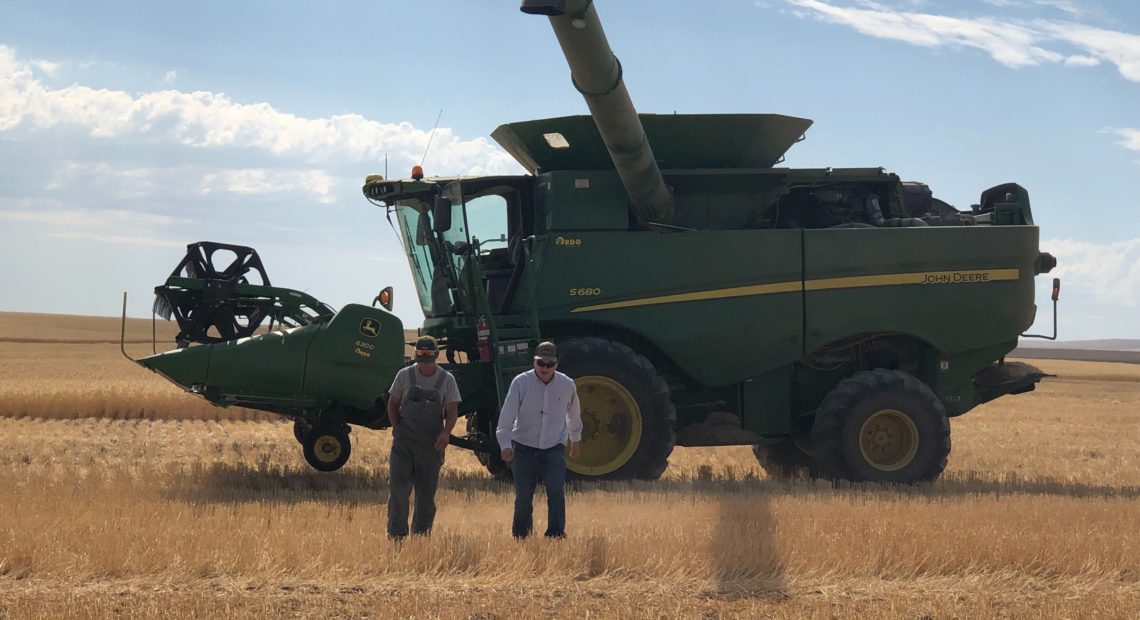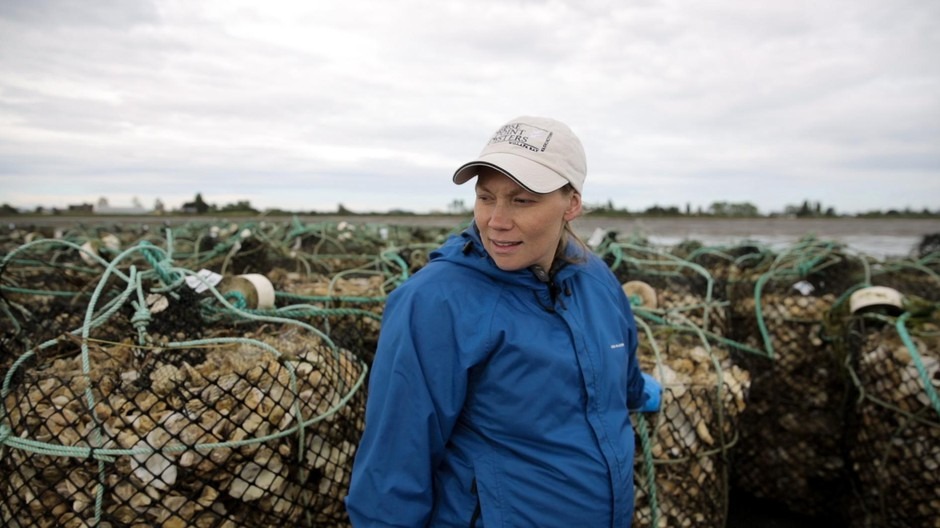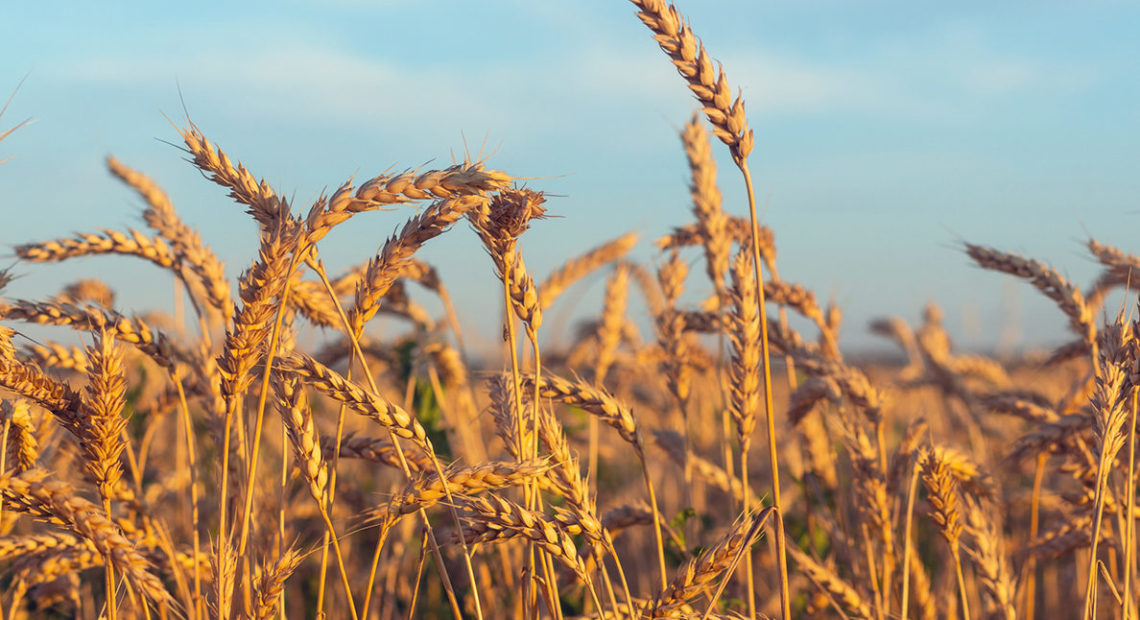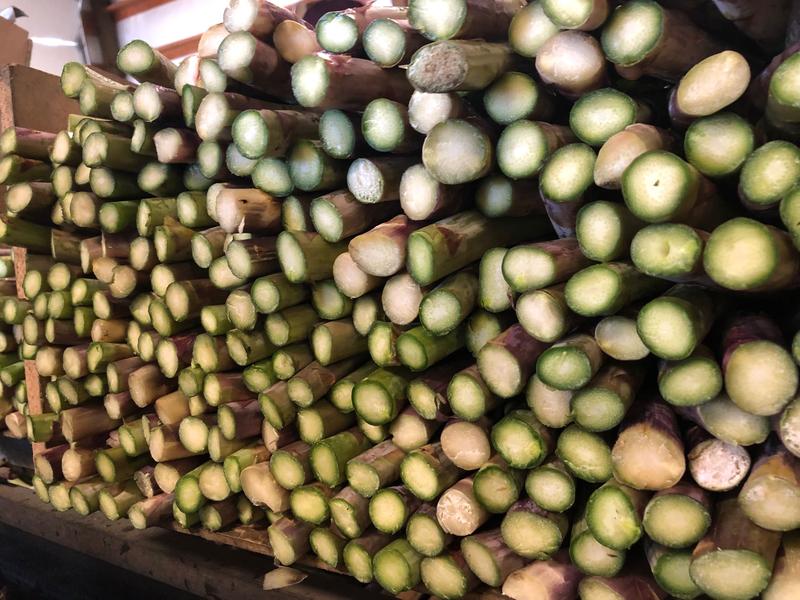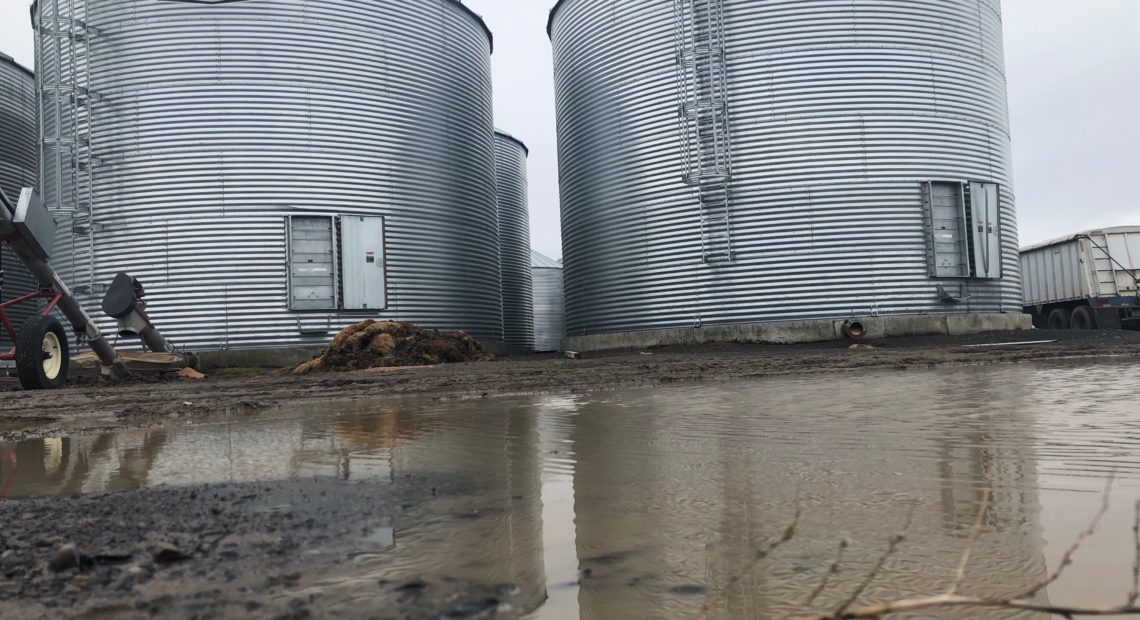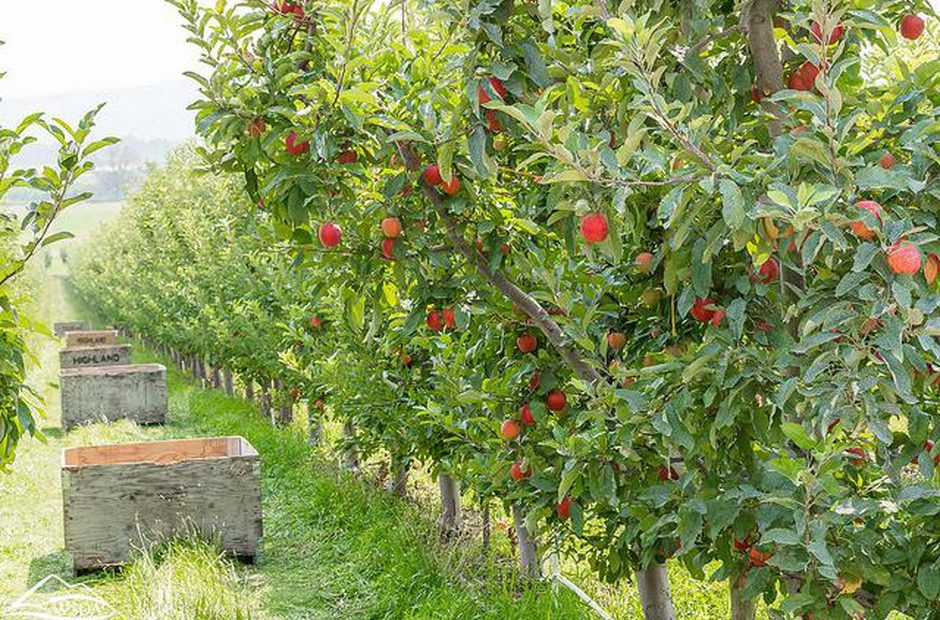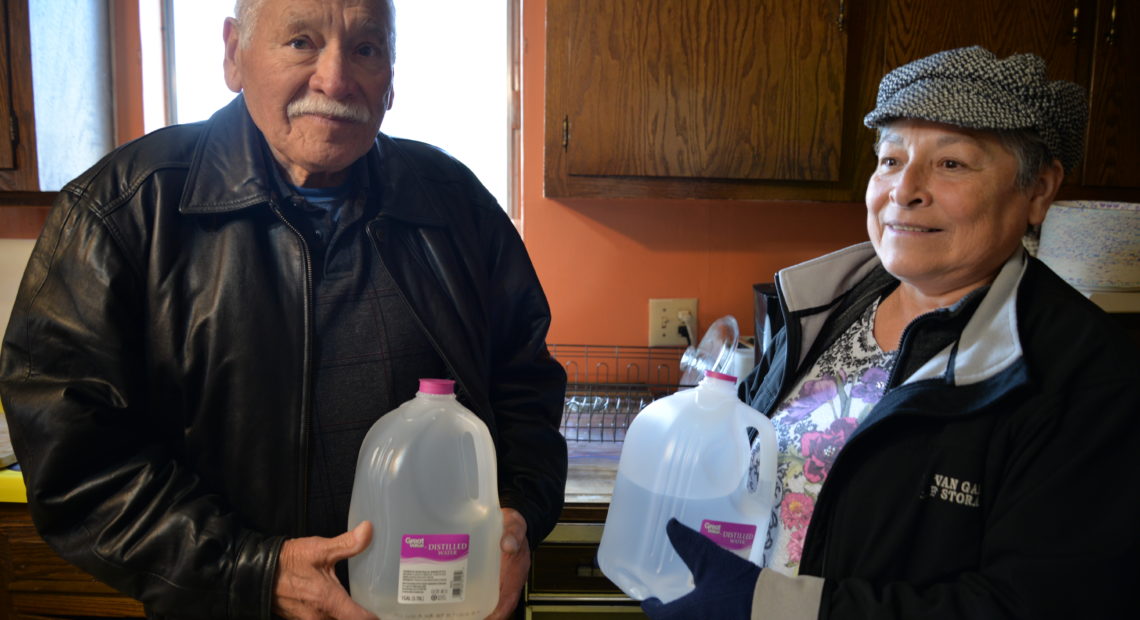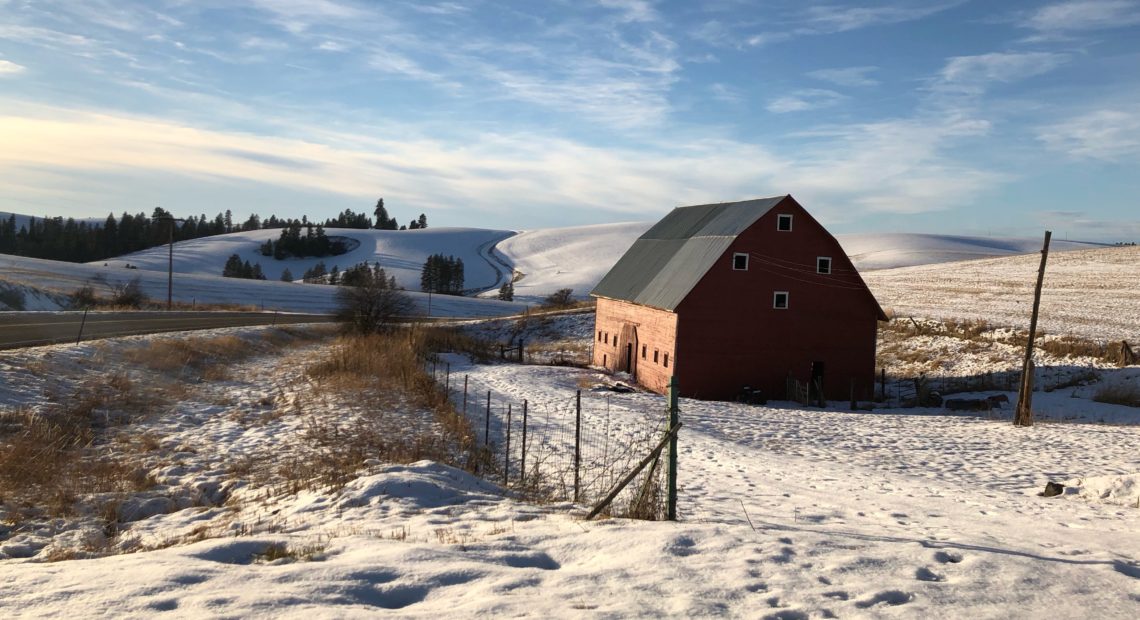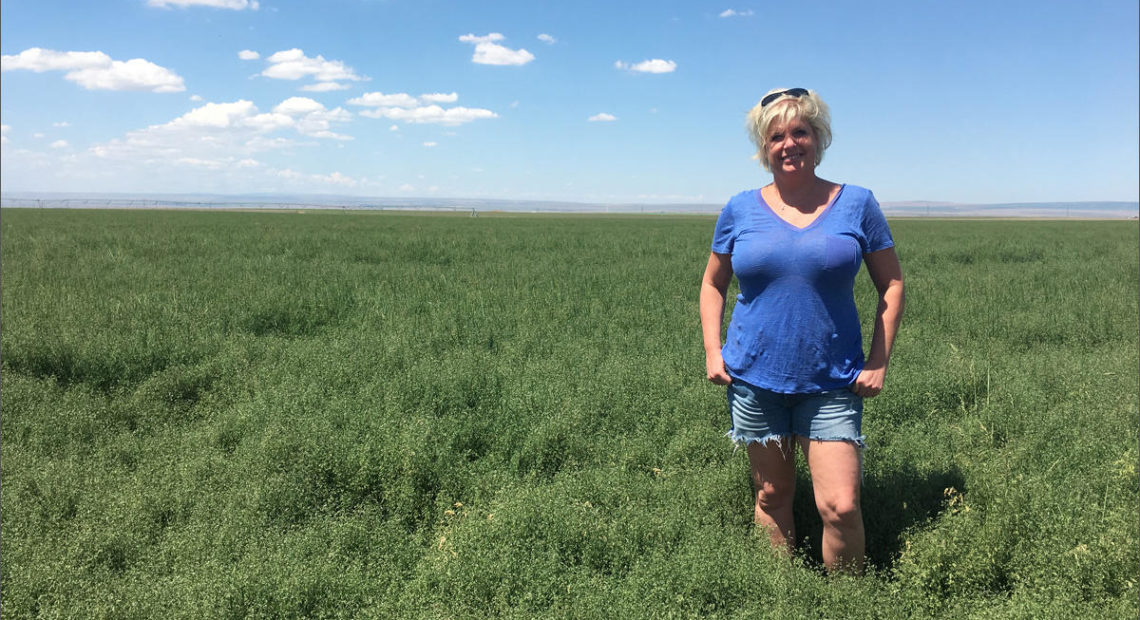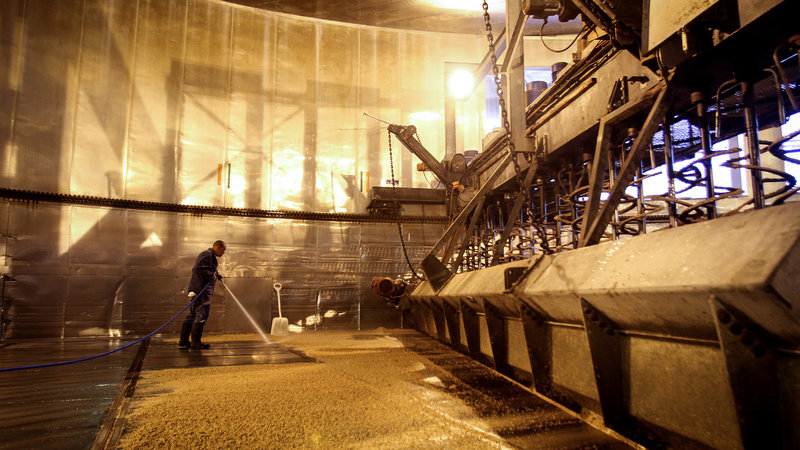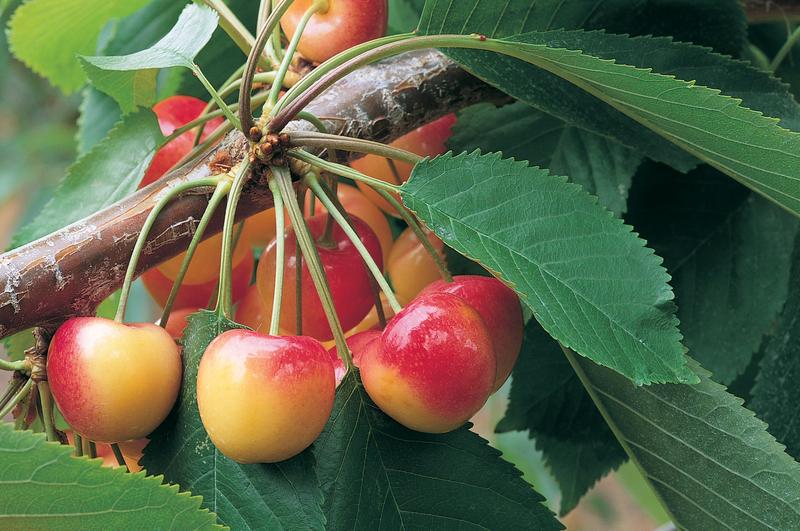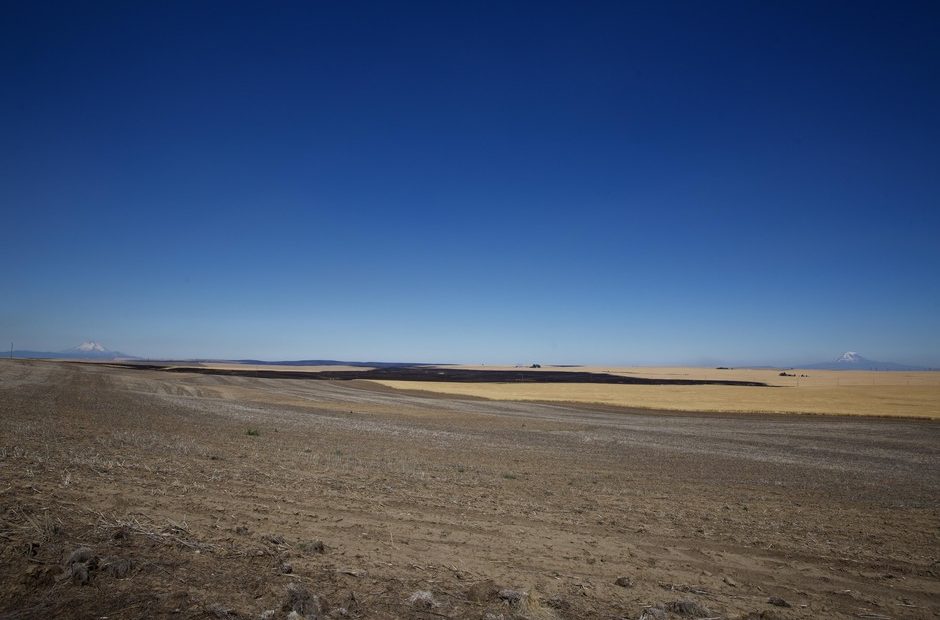Farmers, and a future farmer, regard a new John Deere swather at RDO, a large tractor dealership in Pasco. (Credit: Anna King / NWPB) Listen (Runtime 4:07) Read In Pasco […]Read More
Ken Luke, a manager with McCain Foods, shows off some of the old standby potato varieties, along with some of the new, like the fresh “King Russet,” at a recent […]Read More
Maple, the 7-year-old yellow lab, takes a swift lick on a couple of milkers near Sunnyside, Washington. (Photo: Anna King) Listen (Runtime 3:54) Read It’s hot! It hit about 110 […]Read More
Blueberries, raspberries and blackberries from Oregon to Washington to British Columbia are baked on the bush and vine. Growers are calling the heat damage widespread and catastrophic. Read More
Learn how sheep ranchers in the late-nineteenth century in Eastern Oregon were already a part of complex agricultural and industrial systems that provided food, clothing and commodities to markets across the U.S. Read More
Much of the Northwest’s high country is still deep in good snowpack but short on rain this spring. That has dryland wheat farmers and cattle ranchers fretting. Cold, wind and dust are even wreaking havoc with produce farmers in the region.Read More
“Now basically, we have Mexican fruit coming in from March all the way to June. We start getting Peruvian fruit come August,” says Rob Dhaliwal, a blueberry grower from Lynden, Washington. “Even in July. Then we start getting fruit from British Columbia. So there is a good 10 months of foreign product coming into the country.”Read More
Farmworkers continue to pick Washington apples in the height of the state's harvest – even as the sustained smoke makes it hazardous to be outside, especially while doing strenuous work or exercise.Read More
The latest harvest estimates say Washington ranchers will harvest nearly 153 million bushels of wheat and Oregon 44 million bushels. That’s around average for both states. A typical barge holds around 122,500 bushels of wheat — meaning 44 million bushels would be about 360 barges full of grain on the Snake and Columbia Rivers heading toward export terminals.Read More
From The Dalles, Oregon to Brewster, Washington, Northwest cherry growers are checking their orchards now, just before harvest. Infected trees have to be cut down. And the disease can spread like wildfire from tree to tree until an entire orchard is just stumps. Read More
For the last decade, the Northwest asparagus industry has been challenged by lower-cost imports, labor shortages and increased farming costs. But this year, the coronavirus pandemic has disrupted the foreign asparagus supply, increasing sales for the Northwest’s crop. Read More
An unprecedented number of ships have canceled their calls to the ports of Seattle and Tacoma. So far this year, there have been 32 canceled international sailings since January 1. That has created the shortage of shipping containers at those Northwest ports.Read More
Across the Northwest, small and mid-sized farms are grappling with a range of challenges brought about by coronavirus.Read More
A team of retirees that scours the remote ravines and windswept plains of the Pacific Northwest for long-forgotten pioneer orchards has rediscovered 10 apple varieties that were believed to be extinct — the largest number ever unearthed in a single season by the non-profit Lost Apple Project.Read More
Spring work starts up, ready or not. And Northwest growers are scrambling to figure out how to work around the global coronavirus pandemic and still bring in the coming harvest. Read More
For the love of Johnny Appleseed! Why are so many apples left hanging (and rotting) on trees in Northwest orchards after the fall harvest? Industry experts and growers says it’s a combination of factors – but really not due to tariffs, as some people think.Read More
Right now, Northwest wheat farmers are wrapping up their harvest in many areas. But across the country, farmers are losing money on every load of that golden grain. Read More
Of the 70,000 acres of mudflats in Willapa Bay, less than 10,000 acres are used for shellfish cultivation. Researchers estimate about a quarter of that farmable land has already been taken over by burrowing shrimp. But the battle over land between shellfish growers and the shrimp is not entirely new. Read More
A couple of federal agencies you probably haven't heard of keep track of what farmers grow, what Americans eat and how the country's entire food system operates. And the Trump administration wants them out of Washington, D.C.Read More
Growers in Washington, California and Michigan raise the majority of the nation’s domestic asparagus -- and Washington’s season is on. But business in U.S. spears is noticeably dwindling due to cheaper competition from foreign markets. That’s because there’s increasing amounts of cheaper asparagus from Peru and Mexico coming in: fresh, canned and frozen. And that’s Read More
Several major crops in Oregon and Washington are significantly delayed from foul winter weather and a cool spring. Wheat farmers are having trouble planting in the wet ground. Potatoes are still being planted a month late. And fruit tree buds are developing slowly.Read More
The fertile fields in Washington and Oregon, are just now drying out from severe winter snows not seen for 100 years. And potato farmers like Schneider are a month behind in planting. A cool spring -- along with this late start -- could throw Schneider’s yields off 30 to 40 percent.Read More
One of the country’s most widely-used herbicides could be linked to an increase in early deaths from Parkinson’s disease for people who live near farmlands, according to new research in Washington.Read More
For six years, Yakima County has been dealing with a complicated problem – nitrates in the groundwater. This month, after missing two other deadlines, a group of citizens tasked with finding a solution finally came up with a plan. For about 2,000 people, that’s good news because they’re closer to clean water. But some critics aren’t so sure. Read More
Farmers who grow pulse crops -- garbanzo beans, lentils and peas -- are in a bind this winter. They have to decide very soon what they’re planting for next year, and contract their seed. Pulse crops are often an important rotation crop for Western wheat growers. But there are record amounts of garbanzo beans in dry storage, and little movement of that heavily-exported Read More
For six years, Yakima County has been dealing with a complicated problem – nitrates in the groundwater. This month, after missing two other deadlines, a group of citizens tasked with finding a solution finally came up with a plan. For about 2,000 people, that’s good news because they’re closer to clean water. But some critics aren’t so sure. Read More
Northwest farmers are anxiously watching Washington, D.C.’s lame duck session to see if a Farm Bill will be passed before the New Year. Read More
Newly published research predicting beer prices could double as rising global temperatures and more volatile weather cause shortages of barley created a big splash. But brewers and barley growers say you shouldn't drown your sorrows just yet: They have a plan.Read More
Retaliatory tariffs levied by China on U.S. goods are taking a toll on Pacific Northwest farm exports. Details about cancelled orders came out this week at a state Senate committee hearing in Seattle.Read More
Climate change might lead to bigger populations of hungrier insects. This could have serious consequences for grain-growing regions in the Northwest and across the world.Read More


